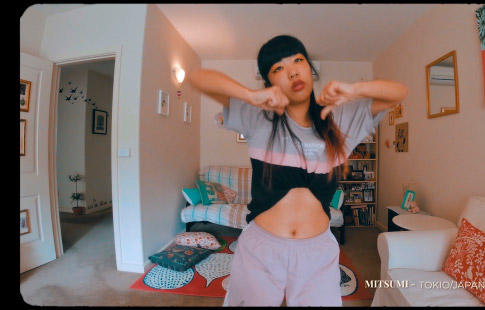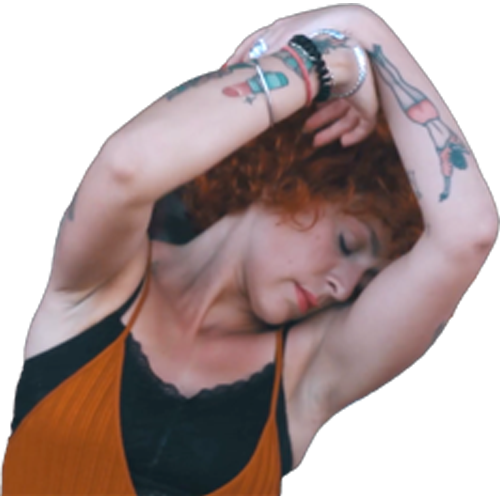
Music, dance and the pandemic
During the past two years, the world has been affected by a pandemic. All over the globe, things changed, and familiar routines could no longer be followed. A young man named David Martínez, known professionally as David Maart, came up with a remarkable idea as he sat alone in his London apartment. David was born in Colombia, but now lives in London where he works in film and music video production for a company called Sweet Shop Films.
David told us that this pandemic affected him emotionally. As it was not easy being locked up without being able to connect to the outside world or with my family and friends.
He decided that in these moments of chaos, there was room for art. He felt that art is rooted in strong emotions and the need to express feelings, in this case loneliness.

He came up with a concept of combining an original song, When the Morning Comes, with short videos of seventeen different dancers from many parts of the world. All would offer an interpretation through dance of their feelings at this moment in time, inspired by music and by what they were living through, many in quarantine. Though each dancer danced in isolation, together they created a community, one with shared experience, passion and creativity.
In total, there were seventeen dancers from different parts of the world, including Spain, Japan, Australia, Colombia, England, Switzerland, Portugal and Denmark. The idea of working with dancers from so many parts of the world reflected the fact that the pandemic was truly a global problem.
David commented: “So, I wanted to show through video the strong connection that we all had, regardless of being so many miles apart. We did not know each other, yet we shared a common emotion and situation.”



For the project, David used a beautiful piece of music entitled “When the Morning Comes.” It was written and composed by a Colombian artist named Pablo Melo, whose stage name is “Melov.”
David felt that “the song seemed perfect since the melody was very calm and reflected that peace that we wanted to show. Yet, at the same time, the lyrics speak of being alone when morning comes, and that was precisely how we all found ourselves at that time.
A positive feature of living in these times is that technology has no limits, allowing communication immediately with all people, in real time and regardless of location. Through video calls, David and his team were in touch with the dancers and analyzed the spaces they had in their homes to understand the room design, the lighting, the space and the camera angles that were needed. All dancers recorded with their own camera or cellphone.

David emphasized that when the idea was presented to the dancers, he made clear that he wanted them to dance freely with their own individual interpretation. They were inspired by the rhythm of the music in a way that helped them to convey what they were feeling at the moment.
In reflecting on this beautiful video, David shared that the response has been very positive. He said: “I think what is so compelling is that everything is very natural. These are real people in real places, and the public perceives that. This fact, in turn, made many people identify with the project, since they, too, were locked in their homes.”
In sharing what he learned through this project, David commented that he feels that people need to stay curious and not be stagnant with hands folded and arms crossed. He feels that there are always opportunities to do memorable things, following one’s instincts and leaving fear of failure behind. David Maart, artist and visionary, has masterfully followed his own advice.
